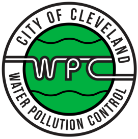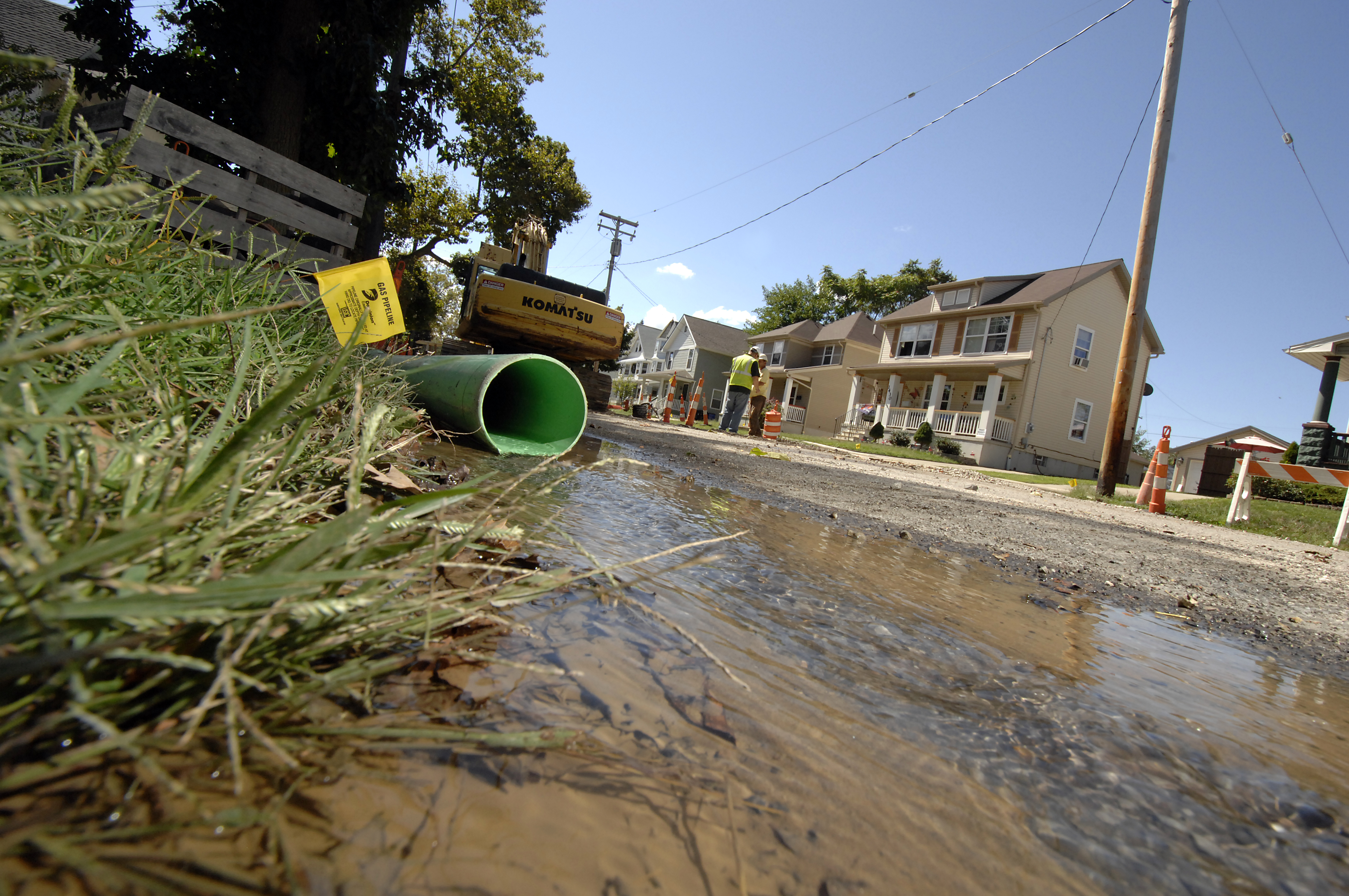Stormwater Manager
The Commissioner of Water Pollution Control is designated as the Stormwater Manger for the city of Cleveland, responsible for overseeing the implementation of the entire Stormwater Management Program (SWMP).
In addition to oversight, the Commissioner heads the city’s Stormwater Steering Committee. The committee is comprised of representatives from various city departments/divisions (Building & Housing, Planning, Law, Public Works, and the Mayor’s Office of Sustainability) that provide support and guidance for the city’s stormwater management efforts and ensures that the city remains in compliance with stormwater regulations.
WPC, as Cleveland’s Stormwater Manager, has to demonstrate compliance with the SWMP by submitting annual reports to the Ohio Environmental Protection Agency.
Stormwater Runoff and the Need to Reduce Its Flow
Stormwater runoff is rainfall or snow melt that flows over the ground surface. It is created when water on roads, driveways, parking lots, rooftops and other paved surfaces do not soak into the ground. Stormwater runoff is the number one cause of stream impairment in urban areas. Large volumes of water are carried to our local streams, wetlands, Lake Erie and the Cuyahoga River and, which can cause flooding and erosion, and wash away important habitat for animals that live in or around waterways.
Stormwater runoff also picks up and carries with it many different pollutants that are found on paved surfaces such as sediment, nitrogen, phosphorus, bacteria, oil and grease, trash, pesticides and metals. These pollutants come from a variety of sources, including pet waste, lawn fertilization, cars, construction sites, illegal dumping and spills, and pesticide application. Researchers have found that as the amount of paved/pervious surfaces in a watershed increases, stream health declines.
What is a Watershed?
A watershed is an area of land that drains rain and snowmelt into a specific larger waterway, such as a river or lake. Everyone lives in a watershed, and our actions on the land have a significant impact on water quality. Healthy watersheds substantially affect the quality of life for people and the environment.
When stormwater flows over grounds in Northeast Ohio it carries away natural and human pollutants from sidewalks, parking lots, yards and construction sites. That contaminated water flows to a nearby waterway that eventually makes its way to Lake Erie untreated. It is important to protect our local watersheds waterways and maintain them as safe places for recreation and as sources of drinking water.
Cleveland Watersheds/Brochures:
- Big Creek Watershed
- Cuyahoga River Watershed
- Doan Brook Watershed
- Euclid Creek Watershed
- Mill Creek Watershed
Central Lake Erie Basin Collaborative: A network of organizations and initiatives that work together to protect and restore natural areas and promote stormwater solutions for a healthy Lake Erie, its tributaries and all local waterways.
Find your watershed at centrallakeerie.org.
Minimum Control Measures
Municipal Separate Storm Sewer Systems (MS4) permittees, such as Cleveland, must develop, implement, and enforce a Stormwater Management Program (SWMP) designed to reduce the discharge of pollutants to the maximum extent practicable to protect water quality and to satisfy the appropriate water quality requirements of the Clean Water Act.
Cleveland’s SWMP explains how the program is run, describes best management practices (BMPs) and measurable goals that are used to address the Six Minimum Control Measures (MCMs) in the permit. Learn more about MCMs.
Learn More






